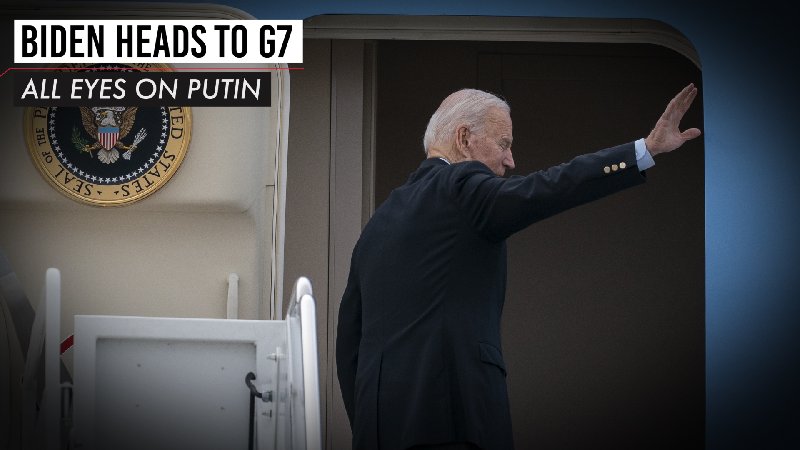
President Joe Biden has bluntly called Vladimir Putin a "killer" and said he "doesn't have a soul."
While he may have used robust language in the past, he is playing his cards closer to his chest ahead of the showdown with his Russian counterpart in an 18th-century Swiss villa overlooking Lake Geneva.
Landing in the U.K. last week, Biden told cheering throngs of U.S. Air Force personnel he planned to “meet with Mr. Putin to let him know what I want him to know.”
He warned Putin, with whom he is expected to meet on Wednesday, that there would be consequences if Russia attacks the United States or its allies.
"I've been clear,” Biden said. ”The United States will respond in a robust and meaningful way when the Russian government engages in harmful activities."
The president laughed this week when a reporter asked if he thought the sit-down overlooking Lake Geneva would quickly shift Putin’s behavior.
As for how he would convey his message, Biden quipped, “I’ll tell you after I deliver it.”
The U.S. has been forced to confront hacking operations and election interference from Russia. Meanwhile, Putin has massed troops along Ukraine’s border. Days before Biden’s inauguration, Russia arrested opposition leader Alexei Navalny.
Central to the summit’s strategy is carving out a more stable path ahead, said Matthew Rojansky, director of the Wilson Center's Kennan Institute.
“If we can get agreement to stop the ransomware attacks by criminals, but which are under Russia’s jurisdiction, that would be stabilizing. But the bigger piece is, of course, the nuclear piece,” Rojansky said, pointing to the New START treaty, the last remaining strategic nuclear agreement that Biden and Putin extended by five years in January











